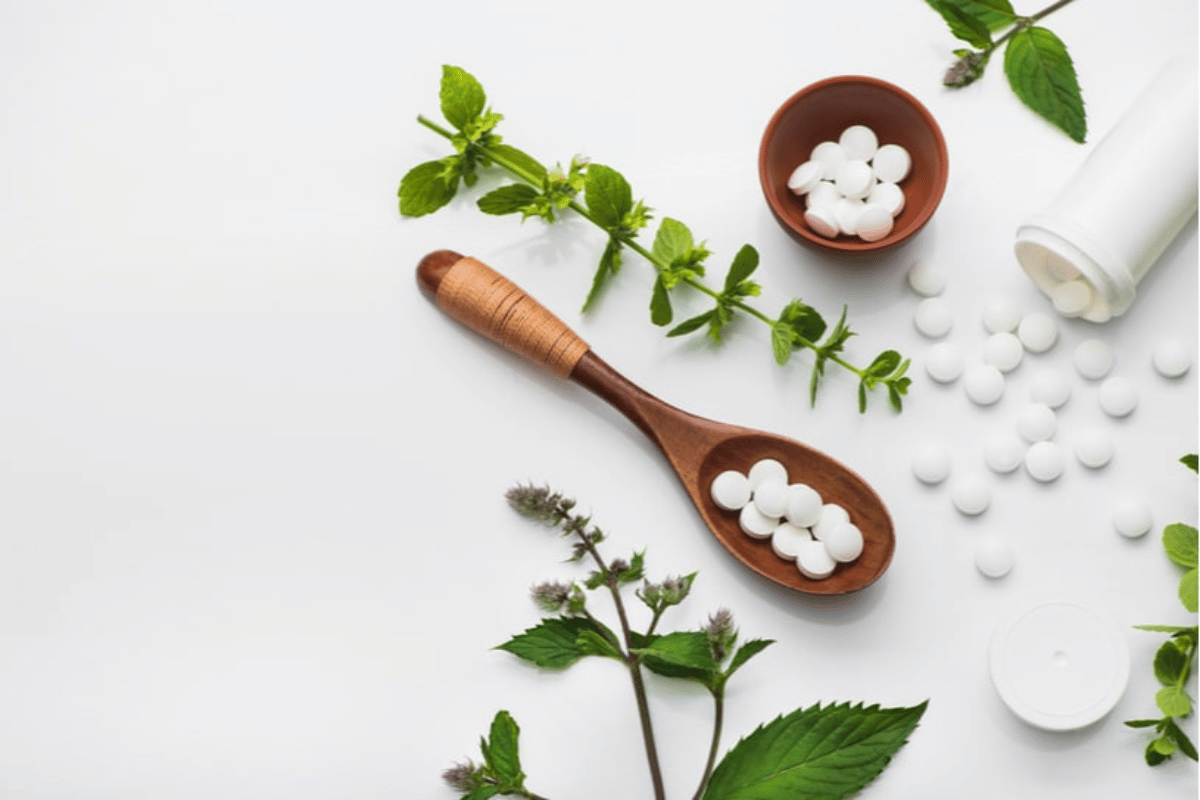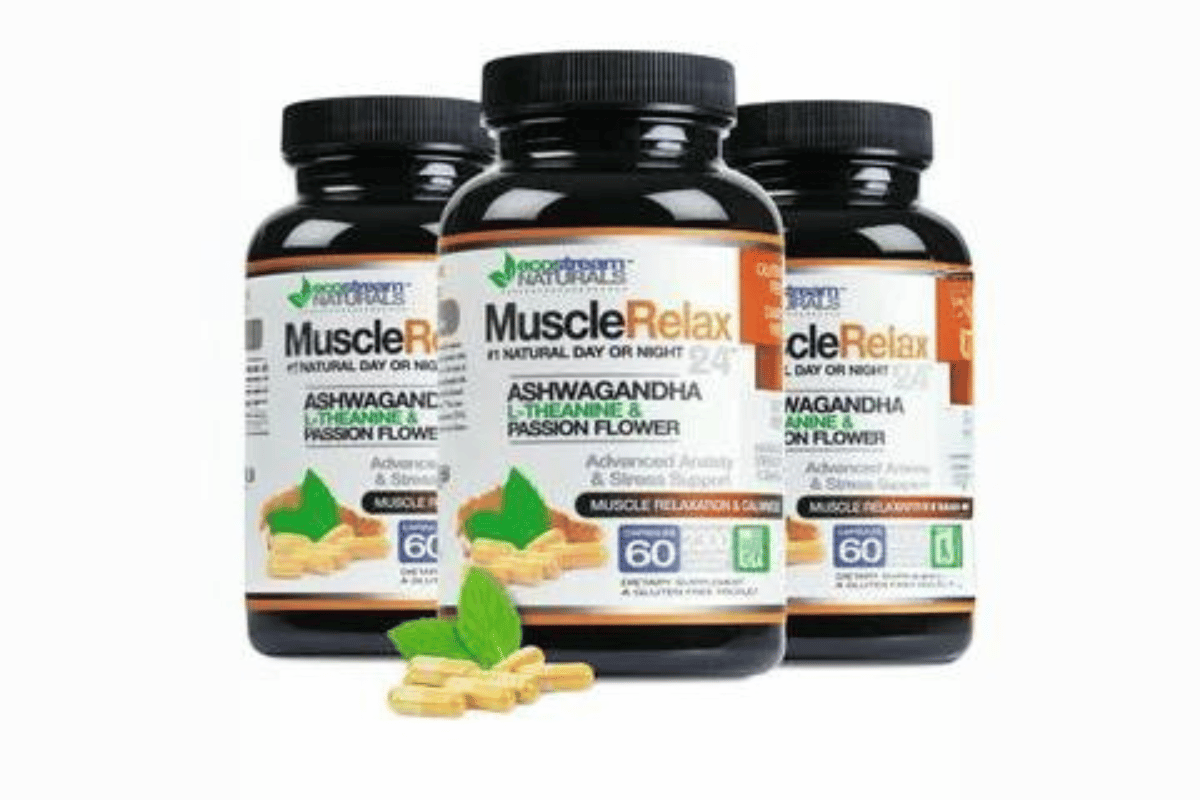Natural muscle relaxers are becoming popular alternatives to prescribed medications as holistic and more natural options for muscle health and relaxation. People look for ways not just to feel well, but also to function well and manage muscle tension properly.
With an increasing number of people becoming conscious that man-made industries and synthetic drugs have side effects, the popularity of natural muscle relaxers has increased. This article looks at a number of natural ways that can help to relax the muscles and melt away stress in the body. Discover what’s on offer, find ways in which these natural solutions can fit into your lifestyle and start living a better life, right within the comfort of your own home.
In drug free nirvana, muscle relaxers abound naturally. Maturing your approach to these natural muscle relaxers will inform you on how you can let go of muscle tension without the help of pharmaceuticals. This guide will go through different types of muscle relaxers available in nature, and how you can use them in your life to contribute to the health of your muscles with nature on your side.

Understanding Natural Muscle Relaxers
That’s why natural muscle relaxers refer to a very wide array of non-essential medication like herbs, supplements, and other lifestyle approaches to reducing muscle tension and relaxing the body. Natural muscle relaxers are holistic solutions for easing muscle pain and improving wellness as a whole.
The way they get the job done can look very different. Some, such as chamomile or valerian root, have natural muscle relaxant properties that stem from the presence of compounds that interact with primitive parts of the nervous system, to subdue brain function and calm the body, thereby relieving muscle spasms and tension. Some supplements help tone muscles in advance of the event to prevent cramps, including magnesium.
Besides that, one of the advantages of using natural muscle relaxers is the possibility of experiencing fewer side effects than conventional muscle relaxants, which can cause dizziness, fatigue, and/or dependency. Natural options tend to work more in harmony with the body in order to bring relief but still support the body’s natural healing system.
Furthermore, natural muscle relaxers can be an important part of an integral approach to wellness. Whether taken in the form of nutritional supplements, herbal teas, or the progressive relaxation of yoga and other similar practices, measures to ease muscle hardness can soothe both body and mind, embodying what it means to have a mindful and holistic approach to health.
Types of Natural Muscle Relaxers
Venturing beyond the heavily marketed world of prescription medicines for muscle tension offers numerous calcium channel blockers, drugless ‘herbal alternatives’, an array of dietary supplements and natural lifestyle practices such as acupuncture and massage that can provide safe ways to muscle relax and manage the resulting stress. Each offers distinctive value in mitigating muscle tension and facilitating relaxation overall.
Herbal preparations are the mainstay of natural muscle relaxing. Herbs such as valerian root, chamomile and passionflower are widely known to be sedative as they relax the nervous system and alleviate muscle spasms. Valerian root, being commonly used as a sleep (insomnia) and anxiety reducing agent, may indirectly help with relaxation of the muscles because of stress relief.
Dietary supplements form another part of the muscle puzzle. Magnesium is crucial for muscle and nerve function, as is calcium. Vitamin D enhances the body’s ability to utilise calcium. Together, these supplements form a foundation for muscle relaxation.
Lifestyle habituates, by way of comparison, are potent natural muscle relaxants. Yoga, which incorporates various physical poses with controlled breathing and meditation, uses all three methods to reduce the stress of everyday human life, making my muscles less prone to stiffness and pain, which can be so debilitating. Meditation and deep breathing exercises also lower stress levels considerably and can be done by people suffering from muscle tension anywhere and any time, without any equipment.
If individuals understand the different types of natural muscle relaxers, they can better learn how to use them in muscle relaxation techniques, applying the options to their lifestyle and health more effectively. Natural muscle relaxers come in various forms, ranging from special teas to dietary supplements, and can help with muscle relaxation, complementing a medical approach and enhancing muscle health alongside traditional methods.

Incorporating Natural Muscle Relaxers into Your Routine
Incorporating natural muscle relaxers into your daily life is an easy and effective way to manage muscle tightness and boost your overall vitality. This is especially important for athletes who want to optimise post-workout recovery, as well as for those who want to address chronic muscle tension. Here are some practical tips and tricks to help you take advantage of natural muscle relaxers in your everyday life.
First on our list is Herbal Remedies: Adding an herbal tea or supplement to your daily routine can be very helpful as you start out. The herbs chamomile, valerian root and passionflower make great muscle relaxants, and can help with sleep and anxiety. Make a habit of having a cup of herbal tea nightly around bedtime.
Add Essential Supplements: Muscle health relies on getting enough magnesium, calcium and vitamin D. Magnesium helps to relax muscles and prevent cramping. You can add these nutrients to your diet to round out what you currently eat, taking daily allowances as a guide, or focus on adding more foods that contain these nutrients, like leafy greens, nuts, and seeds as well as dairy products.
Practice Relaxation Techniques: Taking time for yoga, stretching, deep breathing, or meditation can have a big impact on improving your muscle and mental health. In addition to relaxing overworked muscles, relaxation techniques can also improve mental clarity and your ability to deal with stress. A few minutes of relaxation a day can really pay dividends.
Keep an Eye on Dosage and Interactions: Since most of these products interact with other medications or supplements, it’s of utmost importance to be aware of all potential drug interactions to ensure that your natural muscle relaxants won’t interfere with your present health regime. Consult a healthcare professional about your proposed choice of herbs or supplements.
As an Add-On to Exercise Routines: For those who regularly work out, adding natural muscle relaxants to post-exercise routines can be of immense benefit to recovery. After exercising, you can stretch your muscles, followed by targeting them with relaxation exercises or herbal supplements to augment any possible muscle recovery and relieve soreness.
With these simple strategies, practised mindfully day in and day out, you can help your muscles to function better by reducing tension and pain, and contribute to your health and wellness. Always consult your doctor and attend to your health conditions as you undertake these practices.
Benefits and Considerations
This section examines some of the advantages and also some of the essential precautions we should take when using natural muscle relaxers.The natural muscle relaxers can be very helpful in improving our muscle status and facilitate the soul to attain easiness.
Benefits of Natural Muscle Relaxers:
Reduced Side Effects: For the most part, natural alternatives to synthetic muscle relaxants are less likely to cause side effects, therefore, safer for long-term use.
Holistic Health Benefits: Many natural muscle relaxers not only relax muscles but can also promote general health, including better sleep and reduced anxiety.
Access and affordability: Most natural muscle relaxants – herbal teas and supplements – are more accessible and inexpensive than prescription-based alternatives.
Considerations When Using Natural Muscle Relaxers:
Allergy warning: There is a risk of allergic reactions. Check with your healthcare practitioner before eating fresh herbs or supplements for the first time. The above suggestions are not intended to replace the advice of your doctor, pharmacist or nutritionist. Only they can provide you with appropriate guidance based on your specific needs.
Drug to Drug Interactions: Most natural muscle relaxants can interact with other drugs or supplements and affect how they work. You should talk with your health care provider before starting any new treatment.
Possible Side Effects:Everyone responds differently to natural muscle relaxers. This means you can’t be perfectly sure if any natural muscle relaxer will work for you. Some of the lifestyle risk factors that can influence your response to nutraceuticals are… Health and Wellness is a vital aspect of your safety and health.
Importance of Professional Guidance:
Adding natural muscle relaxers to your routine should always be discussed with your healthcare professionals first, especially in the event that you have any additional health conditions or you might be taking other supplements. This will help to ensure that you select options that are safest and most effective for you.
This way, people can make sensible decisions about whether to incorporate such drugs into their wellness routines. Whether you’re an athlete working to maximise recovery from muscle exertion or a person struggling with a chronic tension disorder, natural muscle relaxants can be incorporated into your wellness regimen with some thought and care for your safety.

Conclusion
Overall, this guide has taken you through ways to integrate natural muscle relaxers into your life, as well as describing their advantages and the care that is needed in using them. Natural muscle relaxants can provide an excellent option for many people needing to handle muscle tension and improve their sense of wellbeing without resorting to over-the-counter or prescription drugs.
Over-the-counter, natural muscle relaxers such as herbal remedies, dietary supplements and relaxation methods not only help ease muscle discomfort but also fit into a larger holistic health strategy. They are not only about physical health but also mental and emotional wellbeing. This means that they can be a powerful part of your wellness plan.
However, as we have seen, there are certainly many benefits to natural muscle relaxers. Becoming well-informed on their benefits and risks, and consulting with doctors and other appropriate healthcare professionals, are key steps in mitigating potential adverse effects and ensuring that these natural muscle relaxers can be used safely and effectively, taking into consideration your specific health situation.
We hope our readers will approach the subject of natural muscle relaxers as one part of their multifaceted approach to good muscle health and happy wellbeing. With the judicious interweaving of natural strategies such as these, you can enjoy your body’s muscle-promoting benefits and engage your fluid, resilient sense of mind.
FAQs: Natural Muscle Relaxers
1. What are natural muscle relaxers?
Unlike commercial or prescription drugs, natural muscle relaxers encompass herbal (plant-based) remedies and nutritional supplements, together with lifestyle practices that help relieve muscle tension and relax the mind and body. Effective in natural-muscle wellness, natural muscle relaxers often have fewer side effects compared with pharmaceutical muscle relaxants.
2. Can you list some common natural muscle relaxers?
Some traditional natural muscle relaxants include herbal tonics including valerian root, chamomile and passionflower, and dietary supplements, including magnesium, calcium, and vitamin D. Lifestyle approaches, such as practice of yoga, meditation and deep breathing can also help people relax their muscles.
3. What are the main benefits of using natural muscle relaxers?
The key benefits are the reductions in side effects, a focus on overall wellness, and widespread availability and affordability. This holistic experience of enhanced physical flexibility, combined with the reduction in muscle tension, is beneficial to a whole host of other physiologic considerations, such as sleep and anxiety.
4. What should I consider before using natural muscle relaxers?
Think about the possibility of allergic reactions, interactions with other drugs or supplements, and the fluctuation in efficacy. Check with your doctor to make sure any natural muscle relaxant is suitable for your medical condition and lifestyle.
5. How can I incorporate natural muscle relaxers into my daily routine?
You can, of course, take them as herbal teas or as recommended supplements, and waylay anxiety with relaxation techniques such as yoga or meditation. Start with a small dose at first, and see how they work on your systems, gradually building them into your wellness regimen.
6. Are there any risks associated with natural muscle relaxers?
Although safer in general, side effects are possible, including allergic reactions and medication interactions, while effectiveness can depend on other medical conditions. Starting with small dosages and consulting physicians are essential, especially where other medical issues or medications are also involved.
7. Why is professional guidance important when using natural muscle relaxers?
Professional advice is important here since natural muscle relaxants, like any treatments, might come with unwanted effects if you have pre-existing conditions or are taking other types of treatment, and your healthcare provider can help you use them safely.
